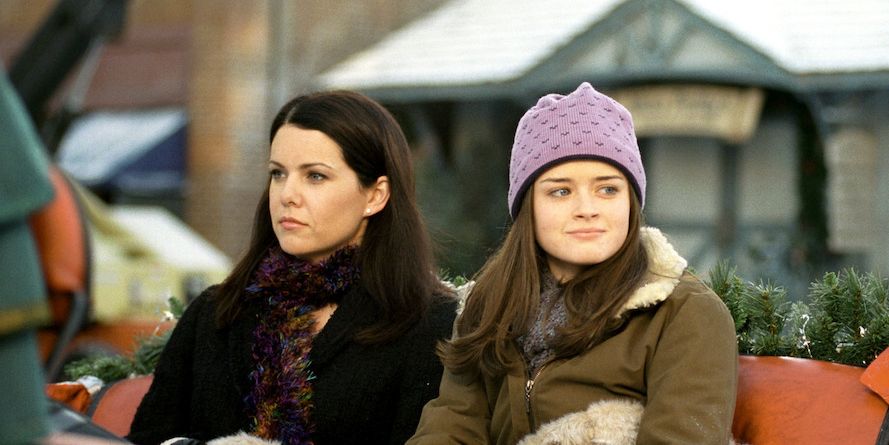Teen TV has long sold us the fantasy of the “cool mom.” She’s not a stickler who scolds or nags—she’s your laid-back confidante, dating coach, and gossip buddy all in one, written into shows like Gilmore Girls and Ginny and Georgia. You know Cool Mom: She’s more like a roommate or big sister than she is an authority figure.
On screen, this kind of relationship can seem heartwarming, exciting, or even aspirational. Off screen, however, it usually involves a child carrying stressful, grown-up responsibilities that no young person should. (We see you, Rory Gilmore.)
In psychology, this confusing dynamic has a name: parentification. At its core, it’s a role reversal where a child is forced to take on adult-like responsibilities from an early age. Sometimes, that looks like being their mom’s therapist, cheerleader, or even the family peacemaker. Other times, it involves managing financial responsibilities, like paying bills or sorting out debts and mismatched finances.
“I think a lot of people see these kinds of relationships on TV and wish their mom was ‘cooler,’” Dara Winley, PhD, LMFT, a Chicago-based therapist and assistant professor at Adler University, tells SELF. In reality, though, psychologists warn it’s not something to envy—it can be an unhealthy setup where kids are the ones who pay the price.
What is parentification?
Parentification isn’t the same thing as being close with your mom or dad. ”It’s not just sharing clothes, matching outfits, or going out for mani-pedis together,” Robyn Koslowitz, PhD, clinical psychologist and author of Post-Traumatic Parenting: Break the Cycle and Become the Parent You Always Wanted to Be, tells SELF. “It’s when the kid starts serving the needs of the adult.”
In extreme cases, that role reversal is glaring, and the child ends up running the household because of a physically or emotionally absent parent (Fiona and Frank Gallagher from Shameless are a classic example of this). It can also be more subtle: Maybe you feel responsible for cheering up your upset or overwhelmed mom after a fight, or feel pressured to stay tethered to your hometown because your dad “needs” you close by.
As harmful as it is, this dynamic typically isn’t malicious, Dr. Winley points out, and it usually stems from blurred boundaries. Think of Lorelai Gilmore or Georgia Miller: young mothers who, because of their unstable upbringings, overcompensate by befriending their teenage kids instead of parenting them. In certain households, this pattern might be less about choice and more about survival: When the adult in the room is absent or unavailable, the child has no option other than to care for their siblings and step in as the provider.
So while parentified kids may seem “wise beyond their years,” Dr. Winley says that this maturity masks real harm: They often develop anxiety, guilt, or confusion about boundaries, research shows. Not to mention, their mental health will suffer when they’re sacrificing fun, ordinary childhood experiences—forming friendships, pursuing hobbies, having the freedom to just be a kid and mess up—because so much of their energy is consumed by carrying someone else’s heavy burdens.
How to break a parentified relationship, according to psychologists
It’s a blessing to have a relationship so positive with your family that you’re able to cherish those small, lighthearted moments: swapping secrets late at night, laughing over shared gossip, leaning on each other for breakup advice.


